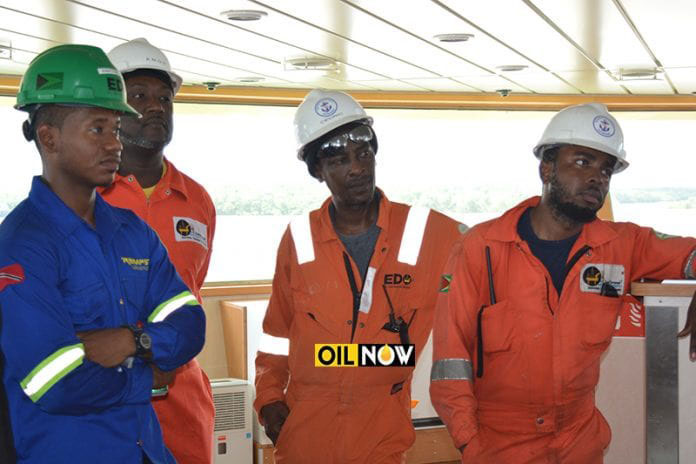 The outbreak and subsequent spread of the Coronavirus has had a “devastating effect” on the global oil & gas industry and the likelihood that the effects could be felt in the current phase of Guyana’s fledgling oil & gas sector, which is proceeding under the control of the US super major, ExxonMobil, cannot, it seems, be ruled out.
The outbreak and subsequent spread of the Coronavirus has had a “devastating effect” on the global oil & gas industry and the likelihood that the effects could be felt in the current phase of Guyana’s fledgling oil & gas sector, which is proceeding under the control of the US super major, ExxonMobil, cannot, it seems, be ruled out.
Last week, as several other oil companies across the world appeared to be ‘running for cover’ in the face of what appeared to be the accelerated spread of the virus, ExxonMobil still appeared to be hedging its bets though what it had to say ought to have left no doubt in the minds of Guyanese that, for a while at least, the oil recovery and export activities centred around the Liza in the oil-rich Stabroek Block, could halt operations as a result of the menace of the virus.
While the company’s Chair-man and Chief Executive Officer Darren Woods had said just over a week ago that its activities offshore Guyana have definitely been factored into the company’s budget, over the next five years, its onshore functionaries in Georgetown were clear if not entirely definitive insofar as likely coronavirus-related stoppages to its operations here are concerned.
“Efforts are being made to limit the disruption of the coronavirus to our operations but given the global nature of our operations, travel restrictions have impacted our ability to move workers into Guyana and could impact our ability to maintain normal operations offshore,” is what Janelle Persaud, ExxonMobil Guyana Public and Government Affairs Advisor was quoted in the March 20 issue of OilNOW, as saying.
Oil & gas operations worldwide have been hit mostly by worker availability considerations associated with efforts to protect employees from the virus and last week Exxon Mobil admitted through its spokeswoman in Georgetown that while it was seeking “to limit the disruption of the coronavirus to our operations” the global nature of its operations had meant that that they had been hampered by “travel restrictions” that have impacted its ability “to move workers into Guyana” and that this could have a knock-on effect on the company’s ability “to maintain normal operations offshore.”
Confirmation that the importance which ExxonMobil attaches to its Guyana operations, notwithstanding, it too could become a victim of the coronavirus’ devastation of the sector, will be disappointing news for Guyana where short to medium-term returns from the sector have already been factored into the country’s development-related activities.
Poised, analysts say, to quickly become the fastest-growing economy in the region on account of its new-found oil wealth, Guyana’s Liza Field in its now celebrated Stabroek Block yielded its first offering of commercial crude on December 20 last. In February, Director of the local Department of Energy Dr Mark Bynoe, travelled to the Liza Destiny, Floating Production, Storage, and Offloading (FPSO) vessel to witness the transfer of Guyana’s first million-barrel lift of crude onto the oil tanker Cap Philippe. Guyana, Bynoe says, is entitled to five million barrels of oil in 2020 as part of its profit share with ExxonMobil and its partners in addition to the 2% royalty on all production, though the vagaries of the oil market mean the prices remain an unknown quantity.
Going forward, Exxon’s Georgetown spokeswoman is quoted as saying that the company is evaluating staffing levels on its four drilling vessels and the Liza Destiny FPSO system before determining its next steps. Mindful of its image at a time when fingers are being pointed at its environmental bona fides, ExxonMobil has said through its Georgetown spokesperson that the company’s priority “remains the safety of the individuals working offshore and the protection of the environment.”
At the beginning of this month the Oslo-based energy research institution Rystad Energy indicated that the outbreak of the coronavirus could trigger extensive staffing and supply shortages in the industry and a fall in investments amounting around US$30 billion.
Guyana was due to receive its first share of oil recovered from the Liza well last month and had opted to make its own arrangements for marketing even though issues had arisen over the country’s lack of expertise in such a pursuit.






